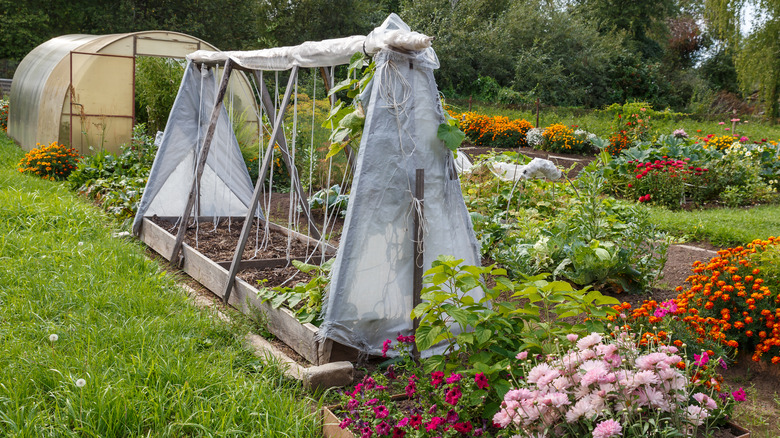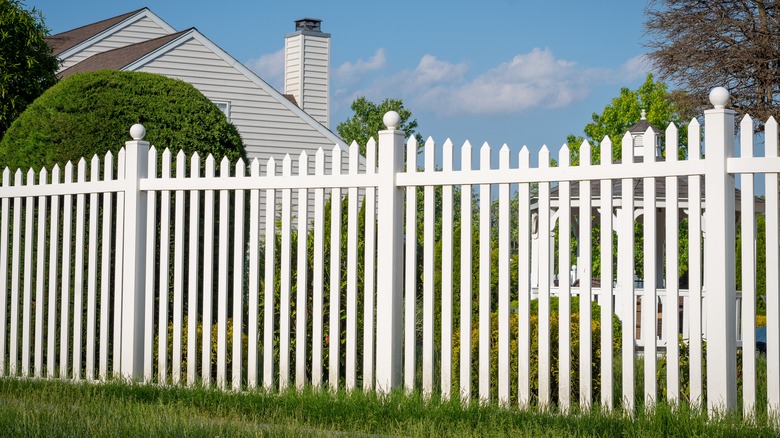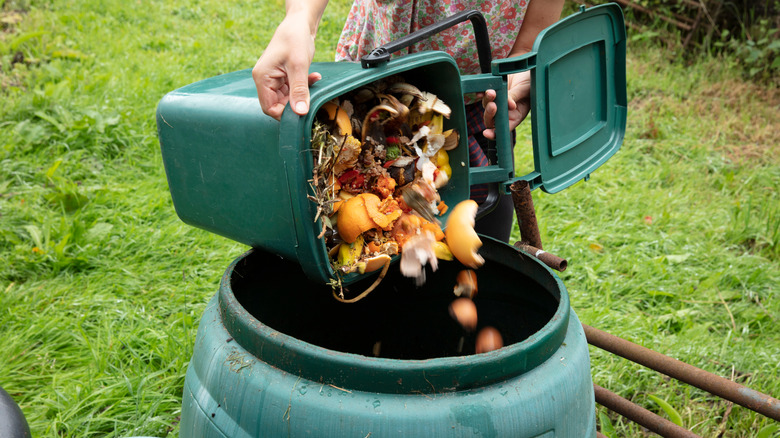Zoning Laws You Should Be Aware Of Before Starting A Gardening Project
Growing a garden at home has many perks: the mere action teaches responsibility and patience while allowing ordinary residents to gain the satisfaction of growing their own food. Though, whether or not you are legally allowed to do so depends heavily on where you live, with your state and local governments implementing detailed legislation to uphold the safety of you and your neighbors. Disobeying these rules, whether intentionally or out of ignorance, could result in a complicated legal battle, either with a neighbor or with your city or county's government. A resident may have to dig up their garden or pay a monetary fine, or both if they wind up losing their case.
This legal concern, however, isn't black and white. Many cities and municipalities allow residents to develop private gardens, though under specific, often restrictive, circumstances. Lawmakers take much into account before introducing legislation to the communities they govern, including environmental concerns and the efforts needed to foster healthy interactions between individuals and communities. Here are some general laws you should know about before starting a home garden.
Private property nuisances
If you call one of the thousands of U.S. cities governed by restrictive zoning laws "home," you likely live in an area classified as a predominantly residential zone. Residential zoning is a broad term describing any area inside a city composed mostly of living quarters rather than commercial businesses or industrial plants and factories. The laws that govern residential zones are usually detailed and specific, explicitly stating what is and isn't allowed upon residents' properties at any given time.
Many local governments have private nuisance laws in place to protect residents from neighbors with property features they might view as bothersome. These nuisances go far beyond traditional noise complaints to include visual annoyances and dangers like smoke. In terms of gardening, some local governments prohibit homeowners from growing plants beyond a specific height out of fear of disturbing or disgruntling neighbors. Others prevent residents from growing certain crops entirely, like corn and sunflowers, due to their nature of growing to extreme heights. If you wish to install a fence separating your property from that of your neighbors, you'll need to check your local government's rules for that, as well.
There are other, even smaller legislative units that select homeowners need to consider. If you live in a residential subdivision with a homeowners association, check your organization's specific guidelines before starting a garden, as many prohibit their residents from doing so, especially in front yards, where the display may be seen as a distraction.
Environmental factors
Gardening as a concept is excellent for the environment since gardeners give back to the earth by improving the quality of the air and soil around them. Though, the benefits of gardening could fall short if the land where the garden is placed is suffering from, for example, a water deficiency. It's common for local governments to implement water restrictions at times when available water is sparse, limiting residents' water usage to absolutely necessary purposes only, usually excluding swimming pool refillings and the washing of driveways and buildings, except for health or sanitary reasons. If your city or county is experiencing a drought, check with your local government to determine if any restrictions have been implemented for your area.
Select local governments also place restrictions on composting: the act of using natural matter, like food waste scraps or manure, as fertilizer. While compost is extremely beneficial to the environment, it can cause more problems than it's supposed to solve if handled incorrectly. Individual states develop their own regulations regarding composting, typically restricting private gardeners from using materials that could be deemed a nuisance to their neighbors, like smelly manure, or from composting beyond a stated limit considered reasonable for a residential zone. Some states require home gardeners to file for a permit to compost, while other states open composting to all residents as long as they avoid violating state laws. Read into your state's environmental regulations before buying a home composting bin of your own.


